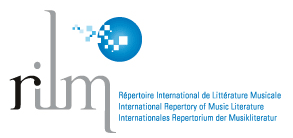Gerardo Gandini: Mozartvariationen
Palabras clave:
Gerardo Gandini, Mozart, objet trouvé, musicofagiaResumen
Este es el texto original leído en las "Jomadas Mozart y Sudamérica” (Salzburgo, 27 y 28 de octubre de 2003). Se centra en las Mozartvariationen (1991) de Gerardo Gandini (Buenos Aires, 1936). La obra se basa en un procedimiento compositivo que Gandini ha utilizado a menudo durante varias décadas y que se refiere a un “objet trouvé”. En este caso, el objeto encontrado es la serie de variaciones para piano Ah vous dirai-je, Maman, KV 265 (1776), de W. A. Mozart. Este material sufre diversos procesos de deconstrucción y defragmentación, alcanzando una especie de “musicofagia” que recorre la tradición musical europea del pasado “para escapar de los estereotipos de la música contemporánea'', según lo expresado por el compositor.
Descargas
Descargas
Publicado
Número
Sección
Licencia
Derechos de autor 2018 Graciela Paraskevaídis

Esta obra está bajo una licencia internacional Creative Commons Atribución-NoComercial 4.0.
Atribución/Reconocimiento-NoComercial 4.0 Internacional
https://creativecommons.org/licenses/by-nc/4.0/
Usted es libre de:
- Compartir — copiar y redistribuir el material en cualquier medio o formato.
- Adaptar — remezclar, transformar y construir a partir del material.
- La licenciante no puede revocar estas libertades en tanto usted siga los términos de la licencia
Bajo los siguientes términos:
- Atribución — Usted debe dar crédito de manera adecuada, brindar un enlace a la licencia, e indicar si se han realizado cambios. Puede hacerlo en cualquier forma razonable, pero no de forma tal que sugiera que usted o su uso tienen el apoyo de la licenciante.
- No Comercial — Usted no puede hacer uso del material con propósitos comerciales.
- No hay restricciones adicionales — No puede aplicar términos legales ni medidas tecnológicas que restrinjan legalmente a otras a hacer cualquier uso permitido por la licencia.
Avisos:
No tiene que cumplir con la licencia para elementos del material en el dominio público o cuando su uso esté permitido por una excepción o limitación aplicable.
No se dan garantías. La licencia podría no darle todos los permisos que necesita para el uso que tenga previsto. Por ejemplo, otros derechos como publicidad, privacidad, o derechos morales pueden limitar la forma en que utilice el material.






